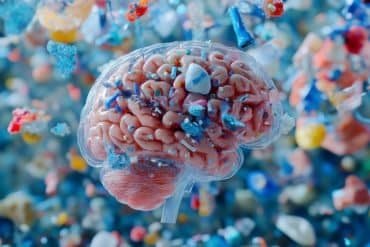A groundbreaking study has revealed the presence of significant amounts of microplastics in human brain tissue, sparking widespread concerns among scientists and public health experts. These tiny plastic particles, which are less than 5 millimeters in size, have become pervasive in the environment due to the widespread use of plastic products and the resulting pollution in oceans, rivers, and the atmosphere. For the first time, this new research shows that microplastics can infiltrate one of the most protected areas of the human body — the brain.
The study, conducted by an international team of scientists, involved the analysis of brain tissue samples from individuals who had passed away. The findings indicated that these microplastic particles, often linked to pollution and the degradation of plastic products, were found in significant quantities in various regions of the brain. This has led researchers to question the potential health implications of these particles, particularly regarding their ability to cross the blood-brain barrier, a protective shield that typically prevents harmful substances from entering the brain.
While the health risks are not yet fully understood, there is growing concern that the accumulation of microplastics in brain tissue could have serious long-term effects. Some experts speculate that these particles might contribute to neurological disorders, cognitive decline, or other health issues, but more research is needed to confirm these potential links. Microplastics are already known to be toxic to humans when ingested or inhaled, but their impact on the brain remains an emerging field of study.
The discovery also raises questions about the broader environmental implications of plastic pollution. Microplastics have already been found in water, air, food, and even human organs, but their presence in the brain underscores the urgent need to address plastic pollution at a global level.
Health authorities are now calling for more in-depth studies to understand the full extent of the risks associated with microplastics in the human body. Meanwhile, environmentalists emphasize the importance of reducing plastic waste and exploring sustainable alternatives to mitigate further contamination.
As the research into this alarming discovery continues, the need for stronger environmental protections and public awareness of plastic pollution has never been more urgent. The potential health risks posed by microplastics, particularly to the brain, may represent a hidden public health crisis in the making.


















hossman
Ok
KHANDY
Ok
Happy
Too risk
Marena25
Good
Suhuyini
Okay